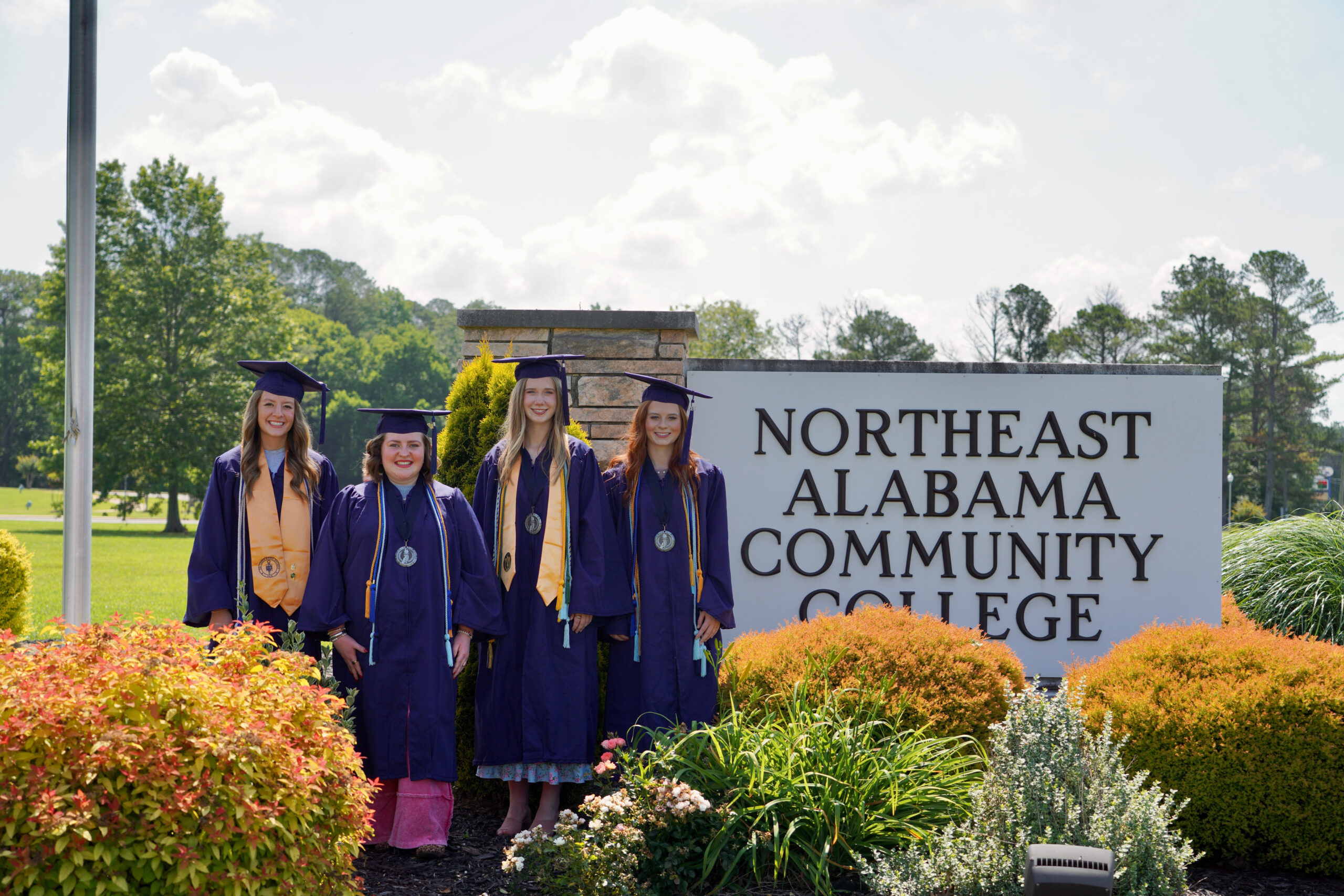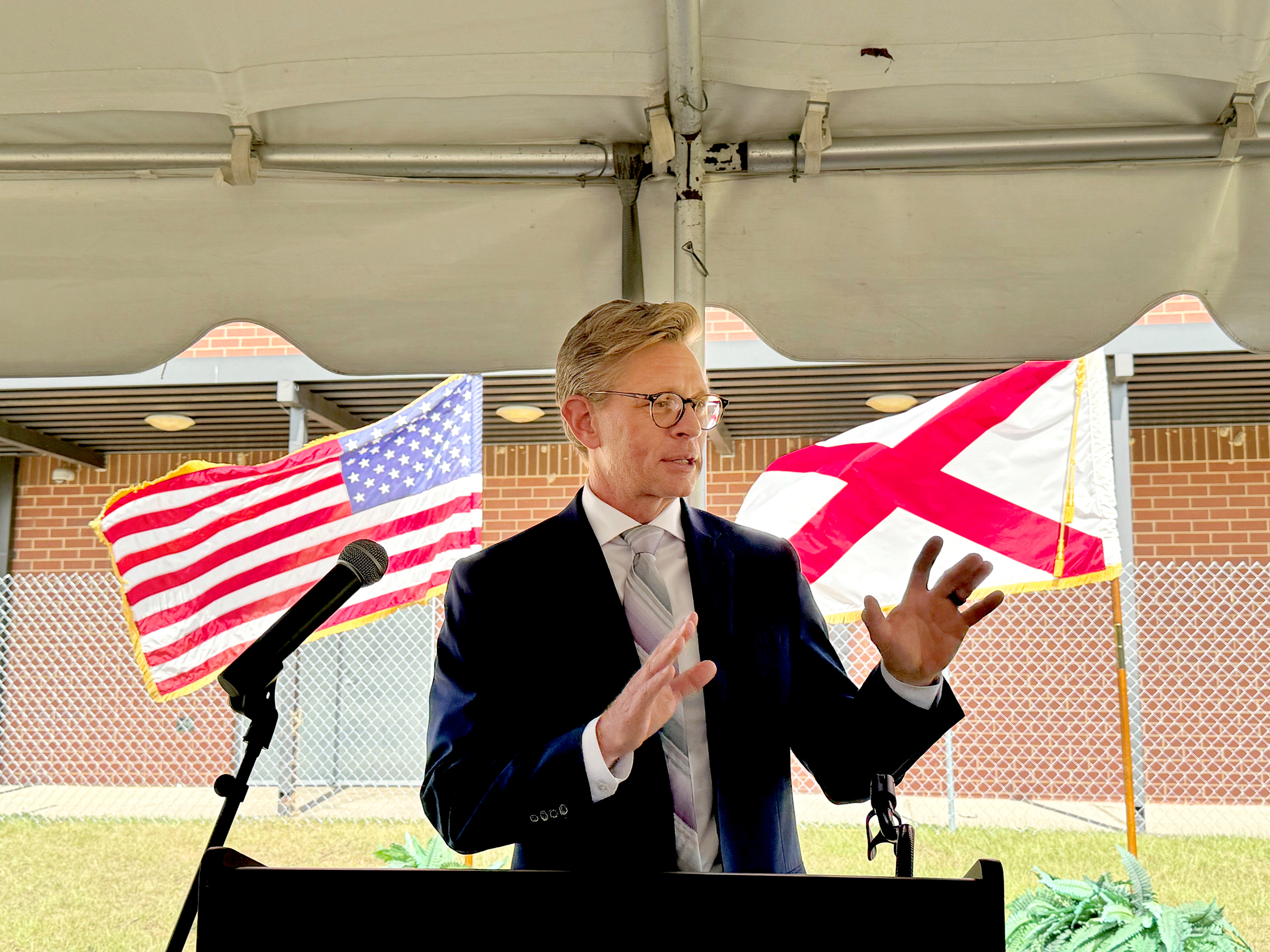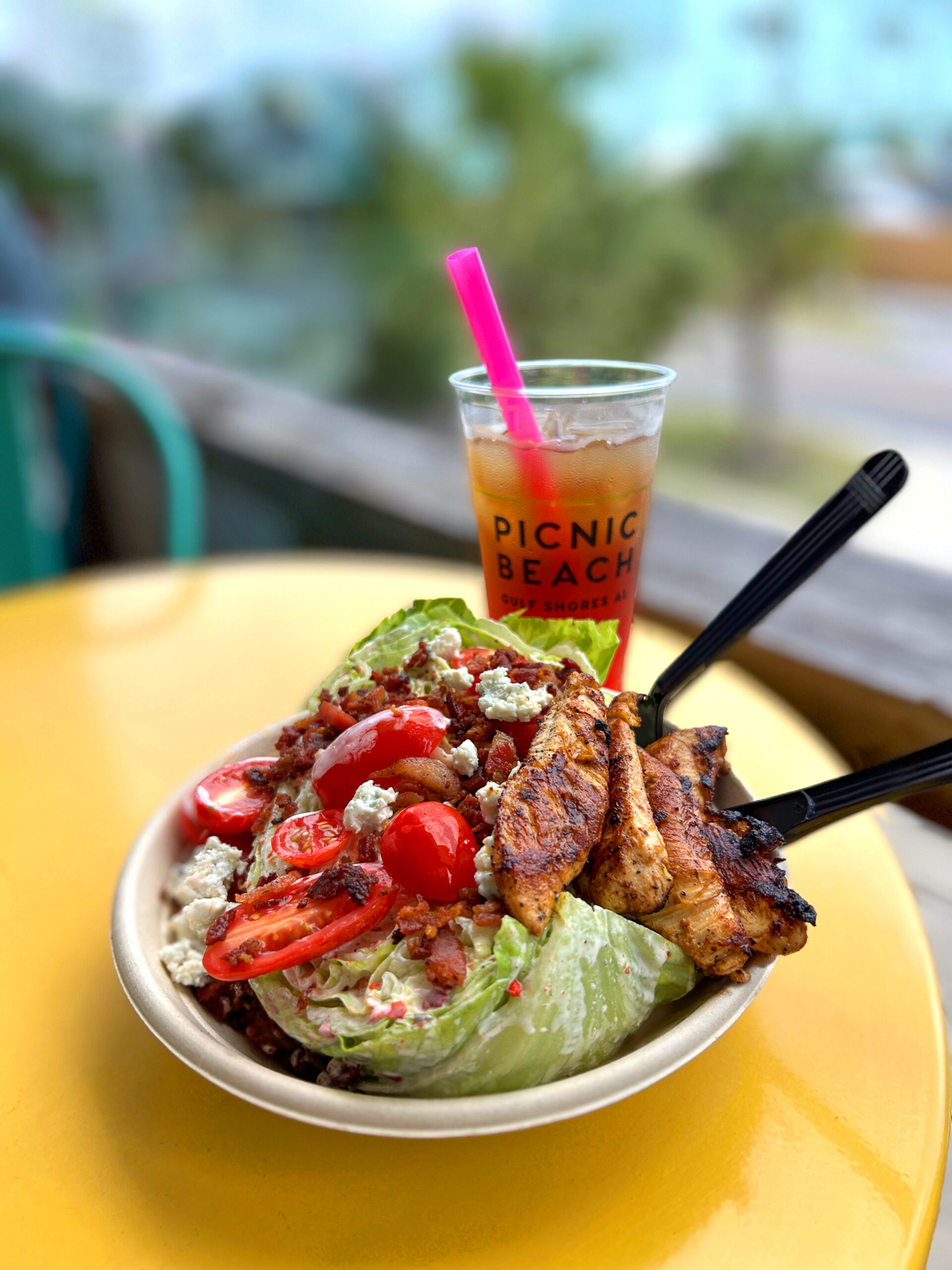By Pamela A. Keene
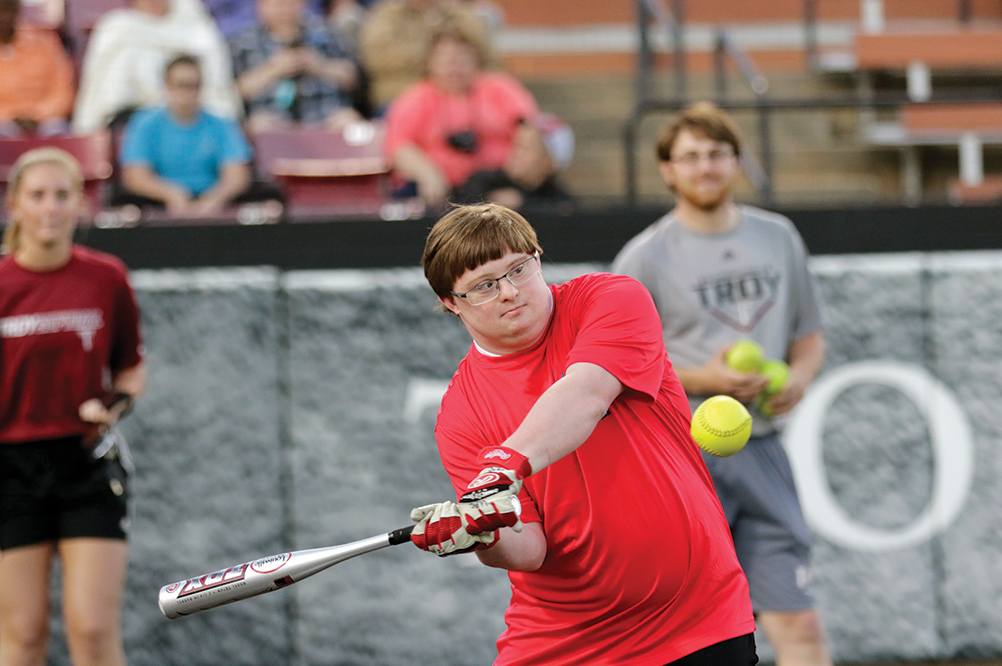
Photo Courtesy of Troy Parks and Recreation
“Thirteen-year-old Kendyll Eaton starts asking right after the holidays. “When can I play ball? Did you sign me up yet?” Her mother Belinda takes her by the hand and says, “Yes, you’re signed up. We’ll start playing soon.”
Kendyll, diagnosed at birth with down syndrome, is asking about Miracle League baseball, created to remove barriers for people with disabilities to enjoy America’s favorite pastime. The program came to Troy in 2011 when the city’s Parks and Recreation department completed a specially designed field at the Troy Sports Complex.
Dan Smith, director of Parks and Recreation for Troy, has managed the program since its beginning.
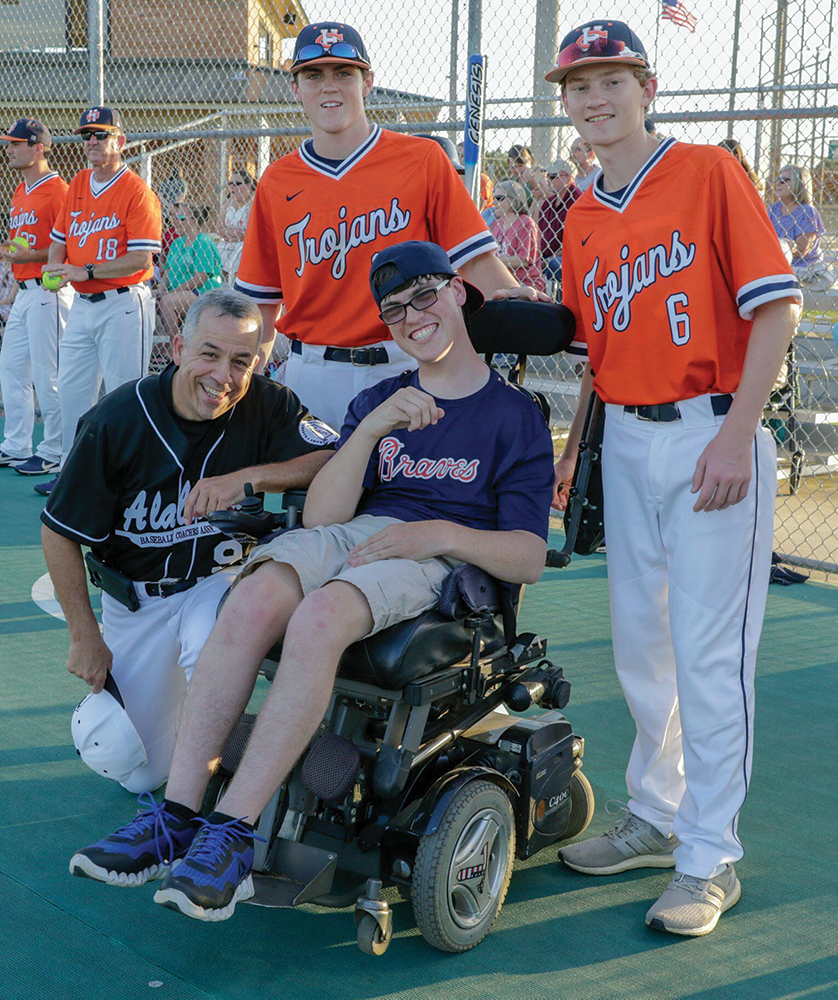
Photo Courtesy Troy Parks and Recreation
“One of our early proponents, Dr. David Runyan, heard about the program in Montgomery and saw it as an opportunity for people with disabilities, like his son Julian, to participate in sports,” Smith says. “He came to me; we went to the mayor of Troy; and that started the ball rolling.”
Two years later, the people of Troy and Pike County had raised nearly a quarter of a million dollars and built their own Miracle League field. Sheldan Sanders, 20, who was born with cerebral palsy, was one of the early players.
“So many of us in the community got behind the Miracle League,” says Sheldan’s mom Sheila Compton, who serves as president of the Troy program. “From the very start, everyone embraced Miracle League and continues to see the benefits to the whole community. It has been life-changing.”
“Miracle League has helped Kendyll and our family so much,” says Eaton, a nurse. “It’s given Kendyll and so many others with disabilities a chance to
do things that other people do, to play a sport, to make friends,
and open a whole new world for them.”
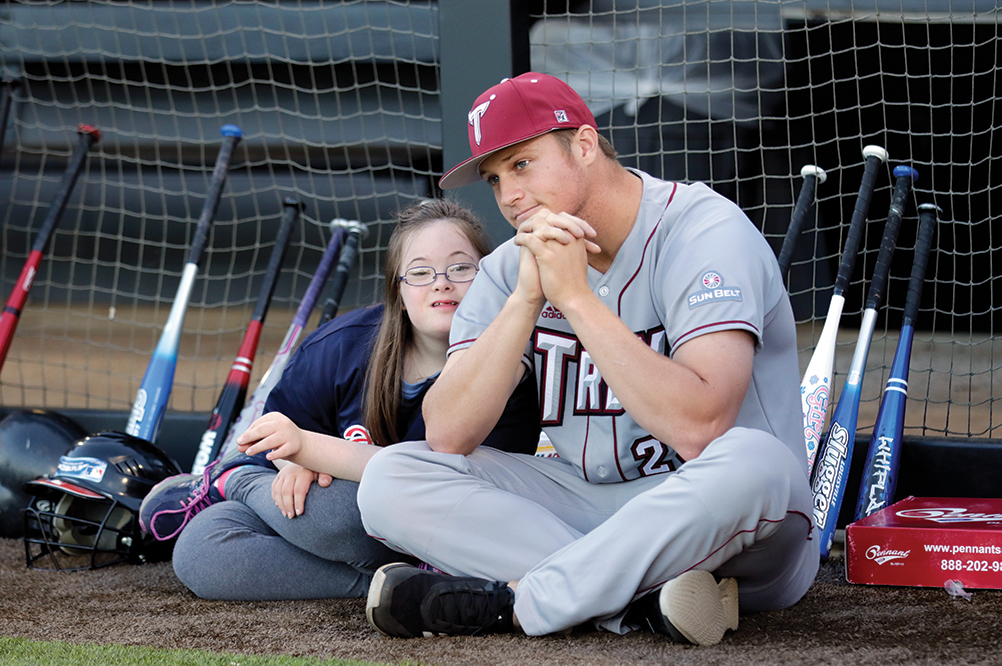
Photo Courtesy of Troy Parks and Recreation
Jordan Lewis, 29, was born with cerebral palsy and has been in a wheelchair his whole life. He attended public schools, but once he graduated, he didn’t have many opportunities for social interaction or activities.
“Until Miracle League came to Troy, there wasn’t much for Jordan to do,” says his mom Anitria Lewis, who works at Sikorsky Aircraft in Troy. She and her hus- band Ron, who works at Hyundai Motor Manufacturing in Montgomery, say that Miracle League has been a blessing for their family.
“We were one of the first ones to sign up when Miracle League came to Troy in 2011,” Anitria says. “Even though Jordan had lots of friends from high school, many of them have gone on with their lives. Miracle League has given him a chance to have something that’s his. Until Miracle League came here, there was nothing in this area for him to do, and very few resources for us.”
Special field, modified rules, everyone wins
Nationally, the Miracle League program grew out of an invitation from a Rockdale County, Georgia, baseball coach to a youngster with disabilities in 1998. Other youth with disabilities in the area asked to play and soon, the community raised enough money to build a specialized field in Conyers in Rockdale County. It hosted its first Miracle League game in 2000.
The field, made of synthetic rubberized turf, accommodates players using wheelchairs, braces, walkers and crutches. The bases, home plate and various markers are level with the field. The field is youth-sized, giving players the opportunity to hit balls over the fence, which happens quite a bit.
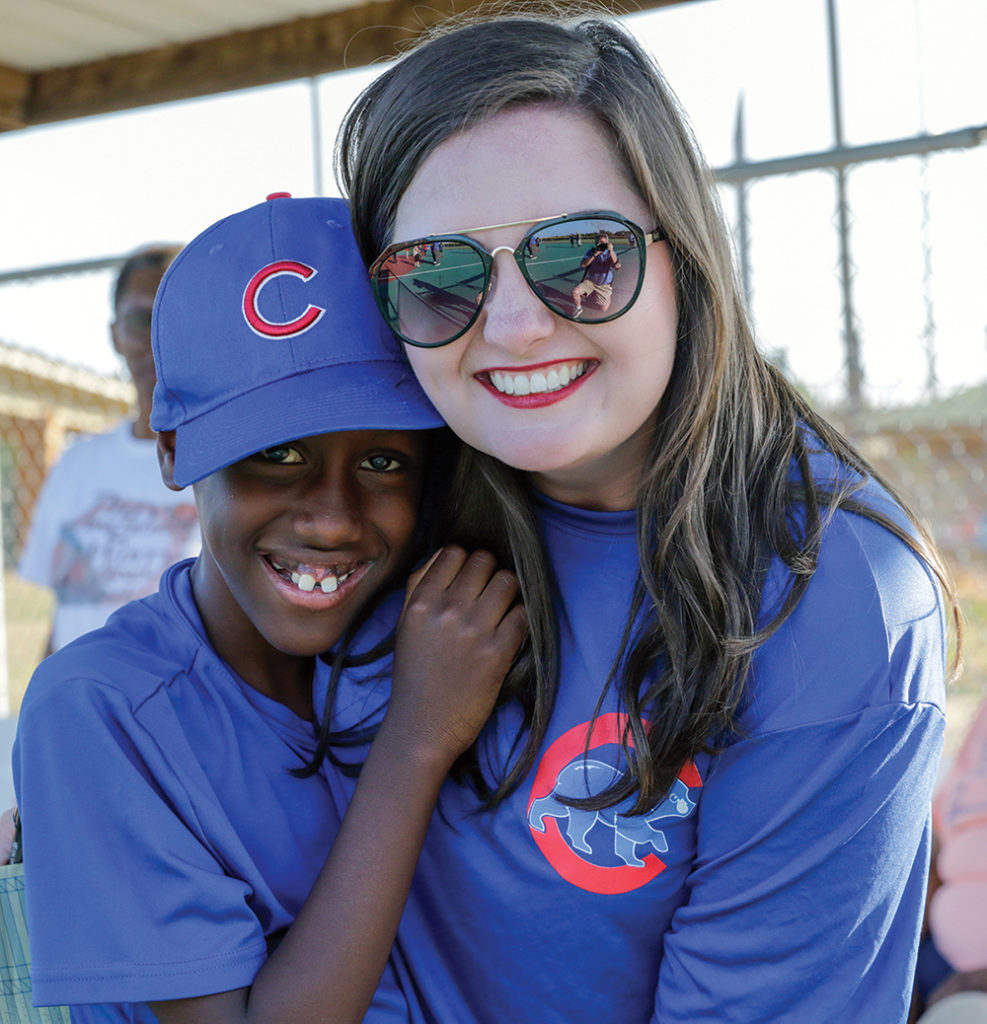
Photo Courtesy of Troy Parks and Recreation
Each team has its own uniforms to wear at every game. There are no outs, every player gets a hit, and every player scores a run. Each team plays an inning, with each player having a turn at bat in the inning.
Volunteer buddies run the bases with the players and help with batting and field- ing as needed, depending on the abilities of each player. Buddies also give encouragement and provide safety for the players. While one team is at bat, the other team and its players’ buddies take the field. Coaches serve as pitchers and catchers. When the game is over, both teams — their players, coaches, buddies and families — win.
Statewide movement
In 2011, Barry Dean, executive director of the Alabama Baseball Coaches Associ- ation, was invited to opening day for the Dothan Miracle League season. It changed his life.
“I’d never been to a Miracle League game before, but once I saw the teams, the play- ers and their enthusiasm, I was hooked,” he says. “Dothan really blows opening day up, with all the teams in their uniforms on the field, plus area dignitaries, singing of the national anthem and the people in the stands cheering. Almost right away, I saw the potential with our own state high school and college players to be buddies and join in to support the program.”
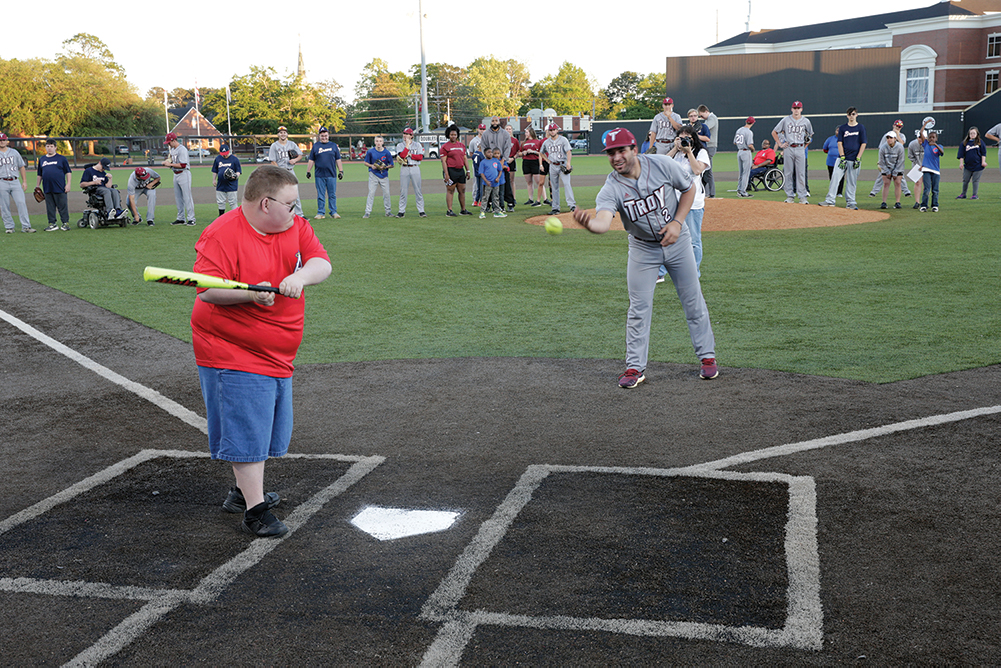
Photo Courtesy of Troy Parks and Recreation
These days, Dean travels across the state encouraging high school and college coaches to bring their teams out as buddies for Miracle League games, like he has the past three years. Last year 30 high school and college baseball teams joined him along the way, while several teams went out on their own and buddied at their local Miracle League games.
“Having this experience for high school and college players is incredibly impact- ful for them,” he says. “Being a buddy to players with disabilities can be really humbling, and we all need a little humility. And, frankly, bringing our players out is a much bigger benefit to our players than you know.”
Each year, the ALABCA hosts the “First Pitch Dinner & Silent Auction,” a fund-raising dinner for the Miracle Leagues across the state. The dinner is held in downtown Montgomery in late January or early February, bringing in VIP guest baseball greats including Gaylord Perry, Jack Morris, Dale Murphy, Fred McGriff, Tommy John and others.
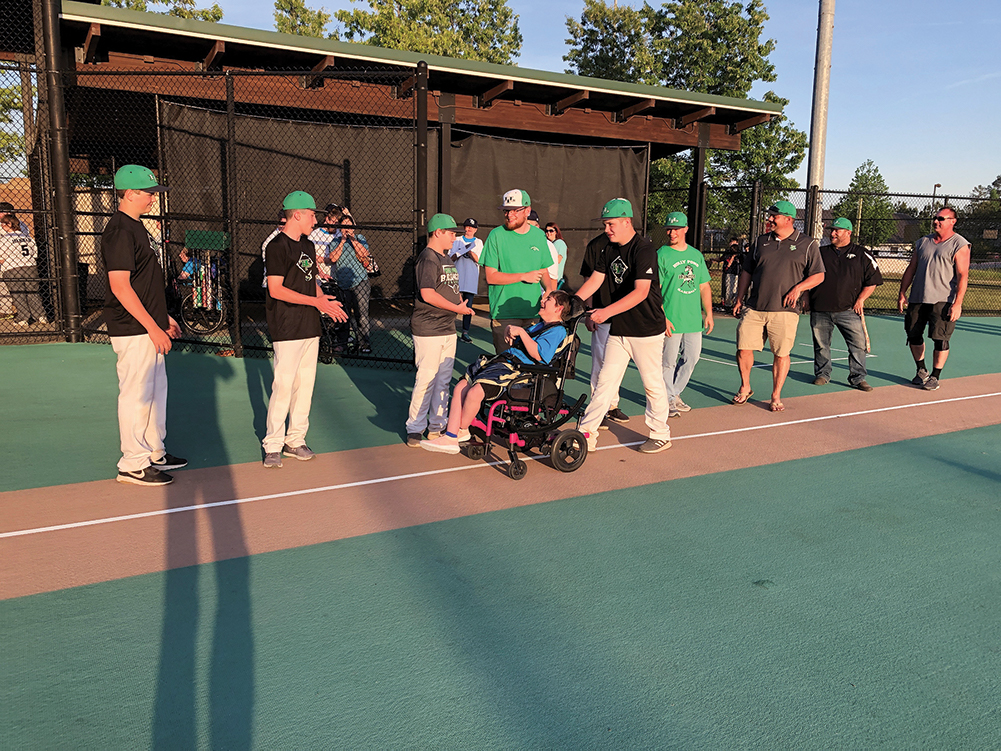
Photo Courtesy Alabama Baseball Coaches Association
“All money raised at the First Pitch Dinner — this year a record $35,000 — goes to active Miracle League programs in Alabama to help build Miracle League complexes and support their programs,” he says.
Alabama’s 14 active Miracle Leagues are lo- cated in Andalusia, Cullman, Dothan, Garden- dale, Hoover, Huntsville, Jasper, Montgomery, Moody, Muscle Shoals, Opelika, Prattville, Troy and Tuscaloosa. Some of these leagues have been active for at least a decade. The newest active league is Muscle Shoals, which opened last year on Sept. 10. Alexander City, Helena, Mobile, Summerdale and Vestavia Hills are raising money to build complexes.
“Each program has the same goal — giving players with disabilities the opportunity to play a sport and do something they may not have ever imagined doing,” Smith says. “Anyone who has been involved in Miracle League says the same thing: It’s definitely life changing for not just the players, but for the coaches, the parents, the buddies and the whole community.”
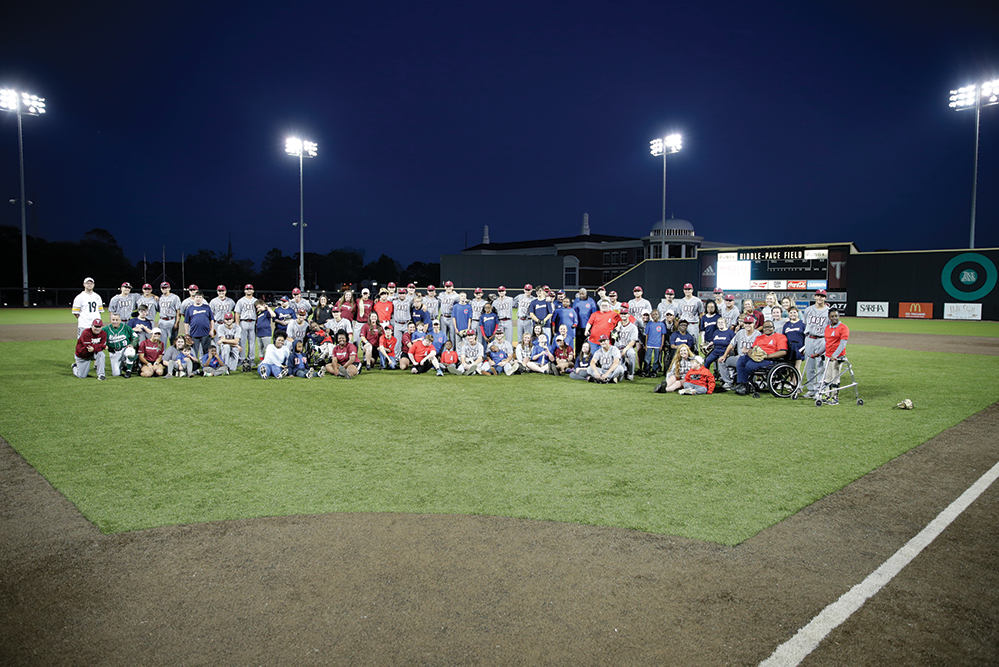
Photo Courtesy Troy Parks and Recreation

